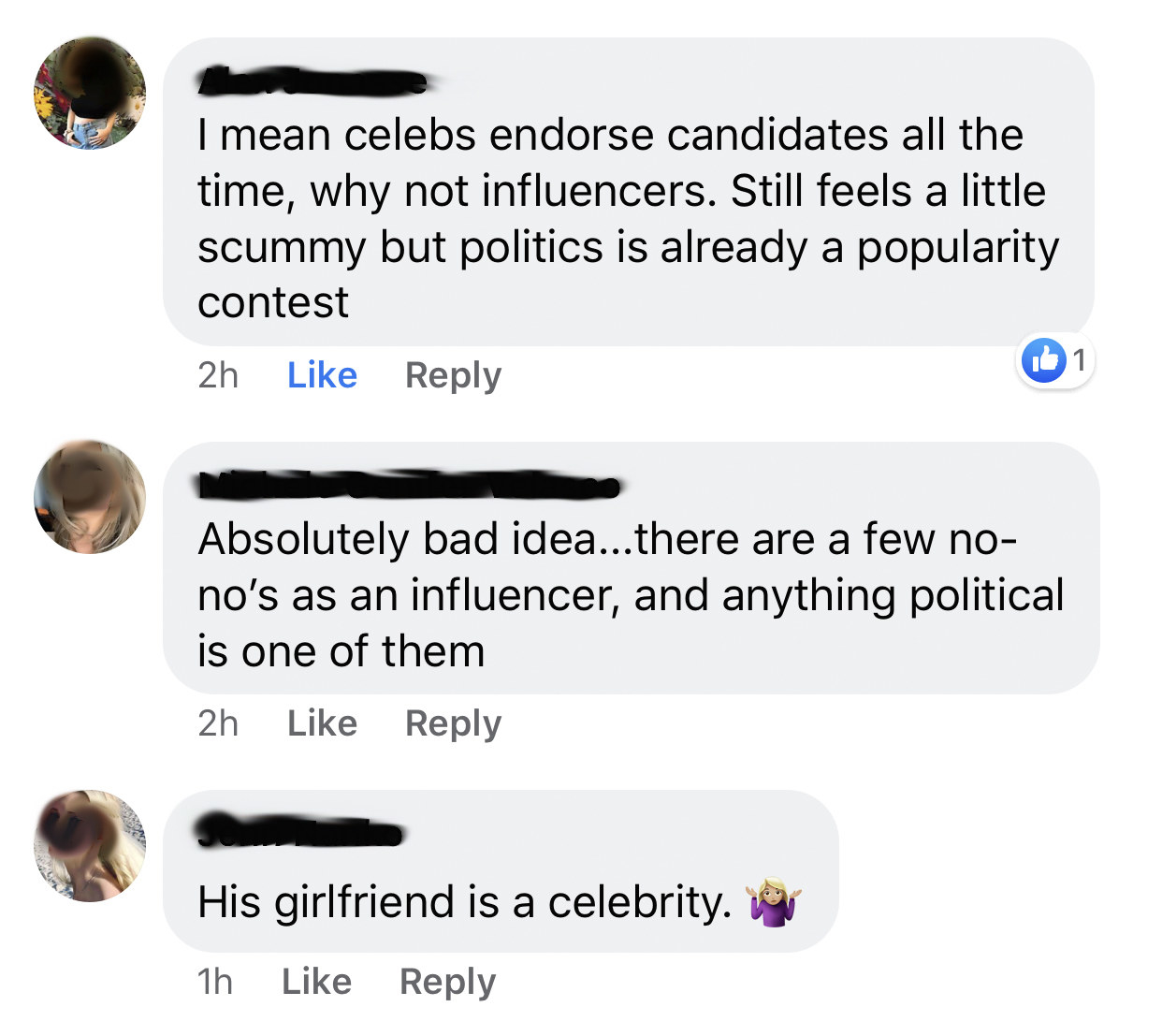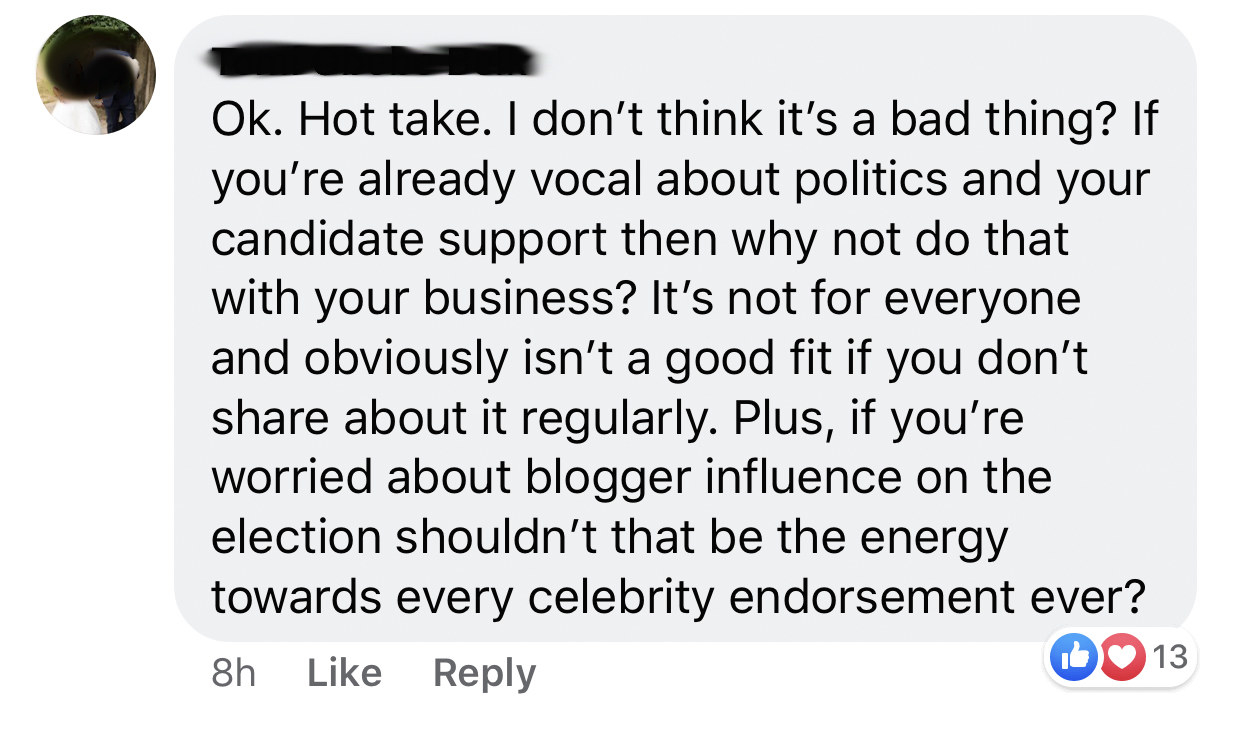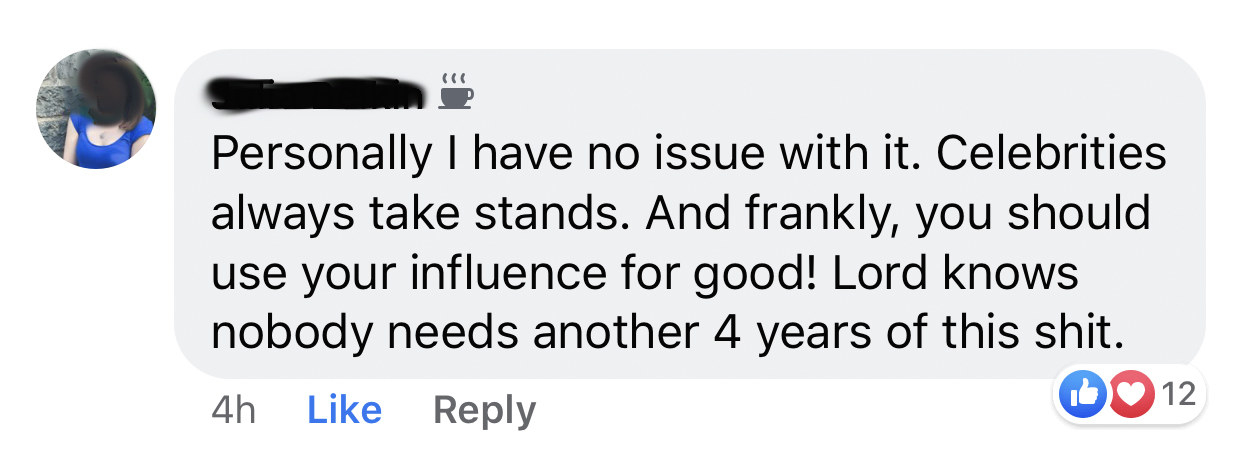
A political sponsorship opportunity pitched to at least one microblogger on an influencer marketing platform is causing discussions about where influencers should draw the line when it comes to paid promotions.
On Friday, 23-year-old fashion and lifestyle blogger Amanda Johnson was matched with a campaign, that's since been removed, that would pay her to post her support for 2020 presidential candidate Cory Booker.
The offer was first posted to the site AspireIQ, a large database that connects brands with sponsorship opportunities to influencers. To use the platform, the brand posts the requirements of their ad. If the user or influencer is interested in the paid deal, they can submit their rate to the company.
The campaign was removed following the publishing of this story. A rep for AspireIQ told BuzzFeed News on Tuesday that they "reviewed this campaign with [their] campaign team and removed it from the platform."
Johnson, who runs a small but growing blog and Instagram account called Sequins and Sales, told BuzzFeed News she was "intrigued" by the campaign, but something about it also felt "off" and ethically "iffy."
"I was intrigued…I didn’t know how to feel about it at first," Johnson said. "But it felt off to me originally because it doesn’t seem like something politicians maybe should use."
"My thing is there are already a lot of influencers who aren’t disclosing their partnerships, even though the FTC requires them to. And now they won't be disclosing partnerships [with politicians] and it’s even more iffy to me."
The campaign, which was titled "United We Win: Keep Cory Booker in the Fight," offered potential collaborators the chance to share a post on various social media channels in exchange for payment. The post asked them to tell their supporters to "keep Cory in the fight with a small donation."
Cory Booker's election team denied that they were directly associated with the social media campaign, as Democratic Super PAC United We Win later confirmed to BuzzFeed News that they created the spon.
"This is nothing to do with our campaign and this isn't a tactic our campaign employs," told BuzzFeed News in a statement on Monday.
On Tuesday, a spokesperson for the Super PAC said this campaign strategy will "engage dedicated grassroots supporters online" and that influencers will be compensated similarly to how individual canvassers are.
"Our organization is committed to using emerging digital tools to independently promote Cory Booker's candidacy because we believe that he is the best choice to beat Donald Trump and unite our country," said spokesperson Philip Swibinski.
"This is simply another way to engage dedicated grassroots supporters online, and those supporters will be compensated for their time in the same way that more traditional campaign efforts like canvassing are also often compensated."
Online, and among blogger and influencer circles, there has been a lot of chatter about the implications of a political endorsement deal like this one.

Johnson provided BuzzFeed News with screenshots of numerous ongoing conversations she's had and observed in private Facebook groups she's in. The members range from private users with small personal accounts to those with growing pages and to micro-celebrities with large followings.
It was a mixed bag of reactions.
Some, like Johnson, immediately were put off by it. They felt politics, like religion, are off-limits for paid ads.
"It comes down to impact," Johnson said. "If someone tries a face cream, it’s like $20. If they vote for this person and they don’t even know what they stand for, and now this person becomes president, and now they’re being elected off of 'Oh, they told me to vote for this person, that’s why...' That’s why it doesn’t make me feel good."
"The impact of this is much greater than just a product," she added.
Other content creators worried it would polarize their followers. They said doing so wouldn't be worth losing their audience and engagements.
"I don't post anything political on my Instagram. You could potentially be alienating 50% of your audience," said one user. "I don't think it's worth losing followers (or even brand collabs) because you shared your political views."
Johnson, however, thinks allowing and publishing political endorsements by influencers is entering murky territory.
For one, she said she worries influencers wouldn't disclose that their presidential endorsements were #ads, because she knows influencers who don't properly disclose their ads.
"I personally only work with companies that I'm really excited about, or that I've used their products. Not all influencers are like that," she said. "I feel like even having payments is enticing for people who don't take campaigns that they think are reputable."
However, among these private Facebook groups are those who have no moral quandary about it.

"If you're already vocal about politics and your candidate support then why not do that with your business?" one person asked. "Plus, if you're worried about blogger influence on the election shouldn't that be the energy towards every endorsement ever?"

UPDATE
This post has been updated with confirmation that Democratic Super PAC United We Win is behind the campaign.
